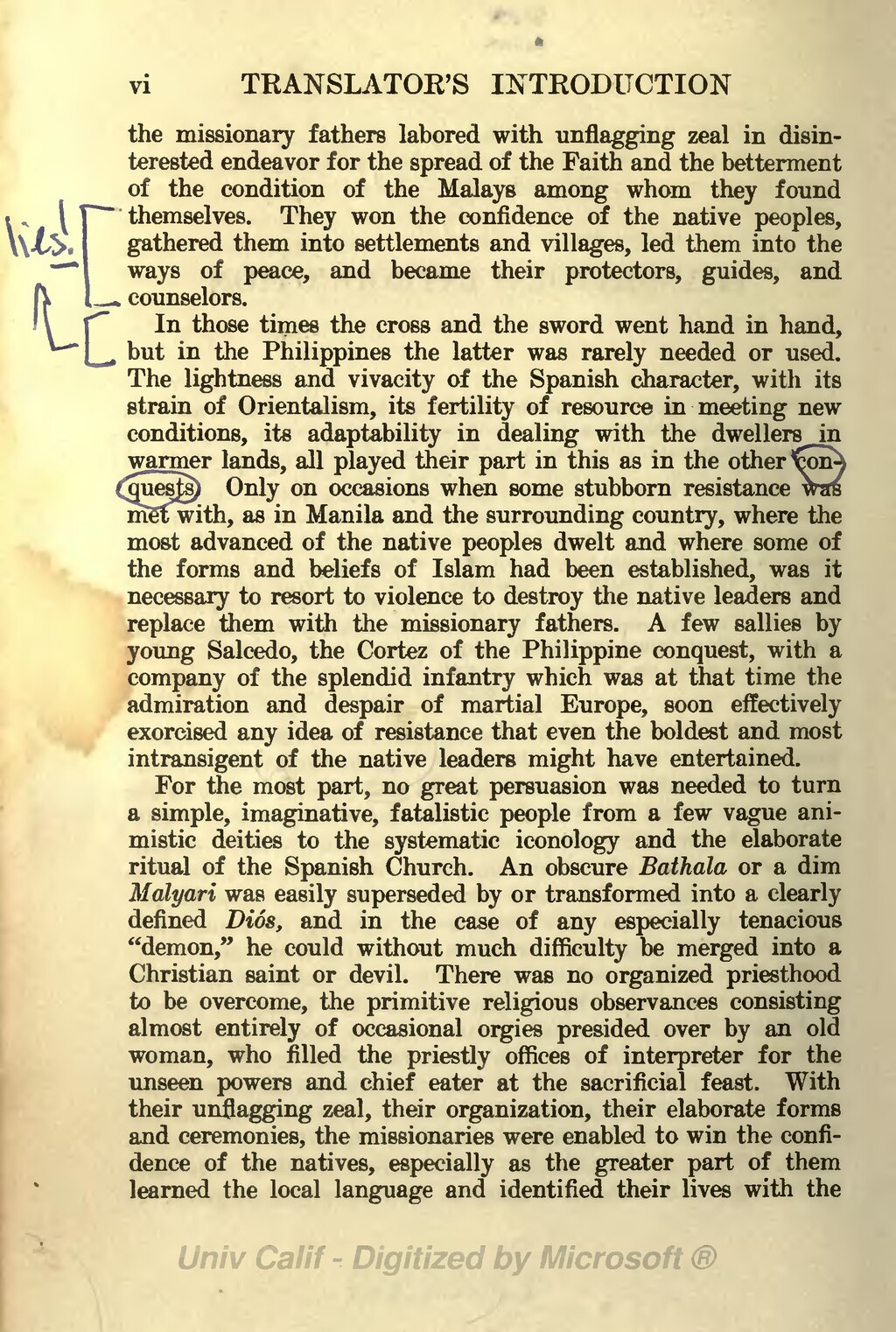the missionary fathers labored with unflagging zeal in disinterested endeavor for the spread of the Faith and the betterment of the condition of the Malays among whom they found themselves. They won the confidence of the native peoples, gathered them into settlements and villages, led them into the ways of peace, and became their protectors, guides, and counselors.
In those times the cross and the sword went hand in hand, but in the Philippines the latter was rarely needed or used. The lightness and vivacity of the Spanish character, with its strain of Orientalism, its fertility of resource in meeting new conditions, its adaptability in dealing with the dwellers in warmer lands, all played their part in this as in the other conquests. Only on occasions when some stubborn resistance was met with, as in Manila and the surrounding country, where the most advanced of the native peoples dwelt and where some of the forms and beliefs of Islam had been established, was it necessary to resort to violence to destroy the native leaders and replace them with the missionary fathers. A few sallies by young Salcedo, the Cortez of the Philippine conquest, with a company of the splendid infantry, which was at that time the admiration and despair of martial Europe, soon effectively exorcised any idea of resistance that even the boldest and most intransigent of the native leaders might have entertained.
For the most part, no great persuasion was needed to turn a simple, imaginative, fatalistic people from a few vague animistic deities to the systematic iconology and the elaborate ritual of the Spanish Church. An obscure Bathala or a dim Malyari was easily superseded by or transformed into a clearly defined Diós, and in the case of any especially tenacious “demon,” he could without much difficulty be merged into a Christian saint or devil. There was no organized priesthood to be overcome, the primitive religious observances consisting almost entirely of occasional orgies presided over by an old woman, who filled the priestly offices of interpreter for the unseen powers and chief eater at the sacrificial feast. With their unflagging zeal, their organization, their elaborate forms and ceremonies, the missionaries were enabled to win the confidence of the natives, especially as the greater part of them learned the local language and identified their lives with the
